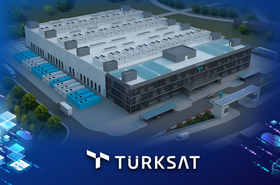Iridium Connectivity has struck a partnership with the Republic of Korea (ROK) Ministry of Defense (MOD).
This will see Iridium provide connectivity for strategic use within the Republic of Korea's military operations.
Satellite firm Iridium will provide the ROK Army with a range of services, including real-time position-tracking capabilities for soldiers.
In a statement, Iridium noted that its service provider Arion Communication Co. Ltd. , and the ROK MOD's Defense Acquisition Program Administration (DAPA) have delivered more than 1,000 Iridium Connected SAT-PRE (Position Reporting Equipment) devices.
The company claims that it will be able to fortify the ROK Army's capabilities in data tracking.
Arion will manage Iridium satellite airtime directly with the ROK MOD.
Arion’s SAT-PRE supports Iridium Push-to-Talk (PTT) and Short Burst Data (SBD) applications such as messaging and positioning.
"This contract is especially meaningful as it is not just a supply of satellite terminals, but also a supply of a satellite communication system that can be fully integrated with the military network system, and it is characterized by the fact that SAT-PRE's outstanding performance is based on the reliability of the Iridium network through numerous battlefield tests, and it can be utilized out of the box with proven communication performance," said Tony Park, CEO, Arion Communications.
"Our solid partnership with Iridium has enabled us to secure this large-scale supply contract with the ROK MOD, and we thank Iridium for their support over the years, despite the lengthy timeline required by the nature of military contracts."
"The SAT-PRE is a project to secure a weapon system with improved performance over the existing Positioning Reporting Equipment through domestic procurement from 2021," added Young-geun Park, head of the Surveillance and Electronic Warfare Program Department, DAPA.
He noted that the project passed the purchase test & evaluation in November before a SAT-PRE supply contract was signed with Arion in December.
Just last week, Iridium confirmed it will extend the lifespan of its existing satellites by five years.
In its quarterly earnings call, Iridium said it will be extending the life of its Thales Alenia Space-made NEXT satellite fleet. The company said this will reduce Iridium's depreciation expense by over $100 million per year.
Iridium's satellites operate in the L-band connectivity frequency, in the radio spectrum from 1 to 2 gigahertz.
Iridium’s original L-band satellites launched in the late 1990s and were retired around 20 years later. Work on the company’s second-generation fleet – known as NEXT – began in 2017. Today the network comprises 80 machines.







